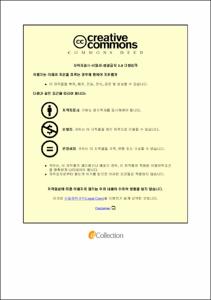A Study On Requests and Politeness in Myanmar Language
- Alternative Title
- 마얀마어의 공손한 요청 표현에 대한 연구
- Abstract
- This study aims to find out how Myanmar people use polite language in daily life and investigate the use of request strategies under the factors of social distance status and age focusing on the use of request head acts strategies proposed by Blum-Kulka, et al. (1989). Many Myanmar conversations in different domains are noted and some examples are taken from the Myanmar popular novels. Then, the questionnaires are delivered to collect the data for analysis to twenty Myanmar native speakers. The data were elicited through the writing discourse completion test (DCT) adapted from the CCSARP project on request (Blum-Kulka, et al. 1989). Generally as a result, conventional indirect strategy (CI) is the most preference strategy and followed by the direct request (D) and the non-conventional indirect request strategy (NCI) respectively. Moreover, the result of the study shows that the factors of social distance status and age more and less affect which request strategy are chosen for producing a polite request by Myanmar.
본 연구는 미얀마 사람들이 공손 표현을 일상생활에서 어떻게 사용
하는지 관찰하고 블럼 쿨카(Blum-Kulka)가 제시한 요청 전략
(request head act strategies)을 중심으로 사회적 거리와 나이에 따
른 요청 전략의 양상을 조사한다. 연구 자료는 서로 다른 관계에 있
는 미얀마인의 대화 기록과 인기 있는 미얀마 소설 일부이다. 20명
의 미얀마 사람에게 설문조사를 하여 자료를 수집하고 분석했다.
자료는 블럼 쿨카(1989)가 요청에 관해 연구한 CCSARP 프로젝트
에서 채택된 담화 완료 테스트(DCT)를 통해 추출된 것이다. 분석
결과 미얀마인이 가장 선호하는 전략은 전통적인 간접 전략(CI)이
며 직접 요청(DI)과 비전통적인 간접 요청 전략(NCI)이 각각 뒤를
이었다. 또한, 미얀마인이 요청 전략을 선택할 때 공손한 요청을 위
해 사회적 거리와 나이가 고려되는 것으로 나타났다.
- Issued Date
- 2018
- Awarded Date
- 2018. 8
- Type
- Dissertation
- Keyword
- Pragmatics
- Publisher
- 부경대학교
- Affiliation
- 부경대학교 대학원
- Department
- 대학원 영어영문학과
- Advisor
- Jee Won Hahn
- Table Of Contents
- I . INTRODUCTION 1
1.1 Language, Politeness and Request 1
1.2 Goals of the Current Study 2
1.3 Organization of the thesis 3
II . LITERATURE REVIEW 4
2.1 Pragmatics 4
2.2 The Role of Politeness in Requests 6
2.3 Politeness 7
2.3.1 Positive Politeness 8
2.3.2 Negative Politeness 10
2.4 Requests 12
2.5 Politeness in Requests 15
2.5.1 Face 16
2.5.2 FTAs 16
2.5.3 PDR 17
2.5.4 Honorifics 7
2.5.5 Hedges 17
2.6 Previous Researchs on Politeness and Requests 18
III . METHODOLOGY 20
3.1 Observation and Participation 20
3.2. Discourse Completion Test (DCT) 20
3.2.1 Questionnaires 21
3.2.2. Subjects 21
3.2.3. Data Coding 21
IV.POLITENESS IN MAKING REQUESTS IN MYANMAR LANGUAGE 23
4.1 Introduction of Myanmar Cultural and Myanmar Conversation 23
4.2 The Use of Deference to the Addressee in Requests in Myanmar 26
4.3 The Use of Hedges in Request in Myanmar 33
4.4 The Use of Finalizers in Myanmar 37
V.RESULTS AND DISCUSSION 38
5.1 An Overview of Results 38
5.2 Requests Making Influenced by Some Factors of Social Relationship status and Age 41
VI.CONCLUSION 44
REFERENCES 46
APPENDICES 49
- Degree
- Master
- Files in This Item:
-
-
Download
 A Study On Requests and Politeness in Myanmar Language.pdf
기타 데이터 / 490.38 kB / Adobe PDF
A Study On Requests and Politeness in Myanmar Language.pdf
기타 데이터 / 490.38 kB / Adobe PDF
-
Items in Repository are protected by copyright, with all rights reserved, unless otherwise indicated.